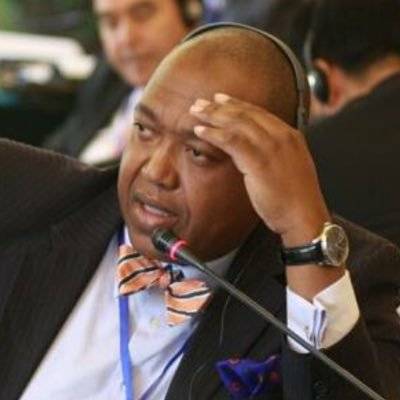Iran is facing what is arguably one of its most difficult periods in its history. Years of US-led economic sanctions continue to have a negative impact on the economy, and the recent tug of war between the Organisation of Petroleum Exporting Countries (OPEC) and Russia has not made things easier.
According to Al Jazeera, Saudi Arabia has responded to the breakdown in relations between OPEC and Russia “by lowering the prices it charges for crude and pledging to pump oil next month at record levels… The twin-pronged assault on prices has sent Brent crude to a 17-year low below $25 a barrel and hammered the income of oil producers.” The reduction in the price of Brent crude, Iran’s main export, will further exacerbate the situation”. Iran has also been experiencing nationwide protests and the manner in which the government has dealt with them has plunged the country further into political and economic chaos.
Amnesty International said that more than 304 protesters have been killed, but a Reuters report put the death toll at 1,500. The Iranian authorities dismiss both figures. Moreover, the internet was shut down for five days, virtually cutting off the country from the outside world.
It was in the middle of this unrest that a US air strike targeted and killed Major General Qasem Soleimani in Iraq on 3 January. Soleimani was a senior Islamic Revolutionary Guard Corps officer and a commander of the Corps’ Quds Force. His death has had an impact on Iran’s expansionist projects abroad, particularly in countries like Iraq, Yemen and Syria.
READ: Iraq blocks 25 Iranian trucks from entering the country illegally
During his funeral on 7 January, 56 people were killed and 213 injured as a result of a stampede. The tension in the country rose a day later when Iran shot down a Ukrainian passenger jet as it left Tehran for Kiev. Although the Iranians denied responsibility at first, they then admitted that it had been shot down by accident. Both the stampede and the “accidental” downing of an airliner were criticised widely within and beyond Iran. “If Iran cannot even manage to control crowds and monitor who is who in its airspace, how can it even think that it can defeat the US and Israel?” was the question on many lips.
![Thousands of people attend the funeral ceremony of Qasem Soleimani, commander of Iranian Revolutionary Guards' Quds Forces, who was killed in a US drone airstrike in Iraq, in Tehran, Iran on 6 January 2019. [Fatemeh Bahrami - Anadolu Agency]](https://i0.wp.com/www.middleeastmonitor.com/wp-content/uploads/2020/01/20200106_2_40182877_50955957.jpg?resize=920%2C580&ssl=1)
Thousands of people attend the funeral ceremony of Qasem Soleimani, commander of Iranian Revolutionary Guards’ Quds Forces, who was killed in a US drone air strike in Iraq, in Tehran, Iran on 6 January 2019 [Fatemeh Bahrami/Anadolu Agency]
Tehran has been asking the world to put pressure on the US to end its sanctions on Iran to help the country tackle the pandemic. It has also asked the International Monetary Fund (IMF) for help as its economy continues to be hit. According to the Telegraph, this is the first time that such help has been sought since 1962. Abdolnaser Hemmati, the head of Iran’s Central Bank, said that he had requested a $5 billion emergency loan to help fight the virus, which, at the time of writing, has infected almost 40,000 Iranians and killed 2,640. The approach to the IMF illustrates the desperate situation that Iran finds itself in.
Despite a lot of goodwill from friends and foes alike, Iran has been very selective about whose assistance it is willing to accept. It has, for example, flatly refuse any help from the US, with Supreme Leader Ayatollah Ali Khamenei claiming that if, as has been suggested in some quarters, the virus was made by the Americans then Washington could not be trusted to send untainted aid.
READ: Iran can help US fight COVID-19 but we don’t need their help, says commander
Iran has also refused to accept help from Médecins Sans Frontières (MSF). “While we offer our gratitude to MSF,” tweeted Alireza Vahabzad, an adviser to the Minister of Health and spokesman for the newly-established Committee to Combat Coronavirus, “with the national mobilisation plan in place and all medical capacities of our armed forces used to fight the coronavirus, there is no need for hospital beds to be set up by foreign workers at the moment.”
The refusal to accept assistance from the Americans is somewhat understandable, given the animosity between the US and Iran for more than 30 years; can Iran really trust US-made medicines given such hostility? However, many questions remain about the rejection of help from such a well-respected organisation as MSF at this time of dire need.
Iranian pride could be the cause, in which case it is time for Iran to show some humility for the sake of its own citizens. The people of Iran deserve everything they can get if they are to alleviate the effects of the coronavirus pandemic. Political point-scoring and pride built upon past glories will have no lasting value when the dust settles.
The views expressed in this article belong to the author and do not necessarily reflect the editorial policy of Middle East Monitor.

![Fire fighters disinfect the streets as a precaution to the coronavirus in Tehran, Iran on 6 March 2020 [Fatemeh Bahrami/Anadolu Agency]](https://i0.wp.com/www.middleeastmonitor.com/wp-content/uploads/2020/03/coronavirus20200306_2_41222307_52830769.jpg?fit=920%2C613&ssl=1)







